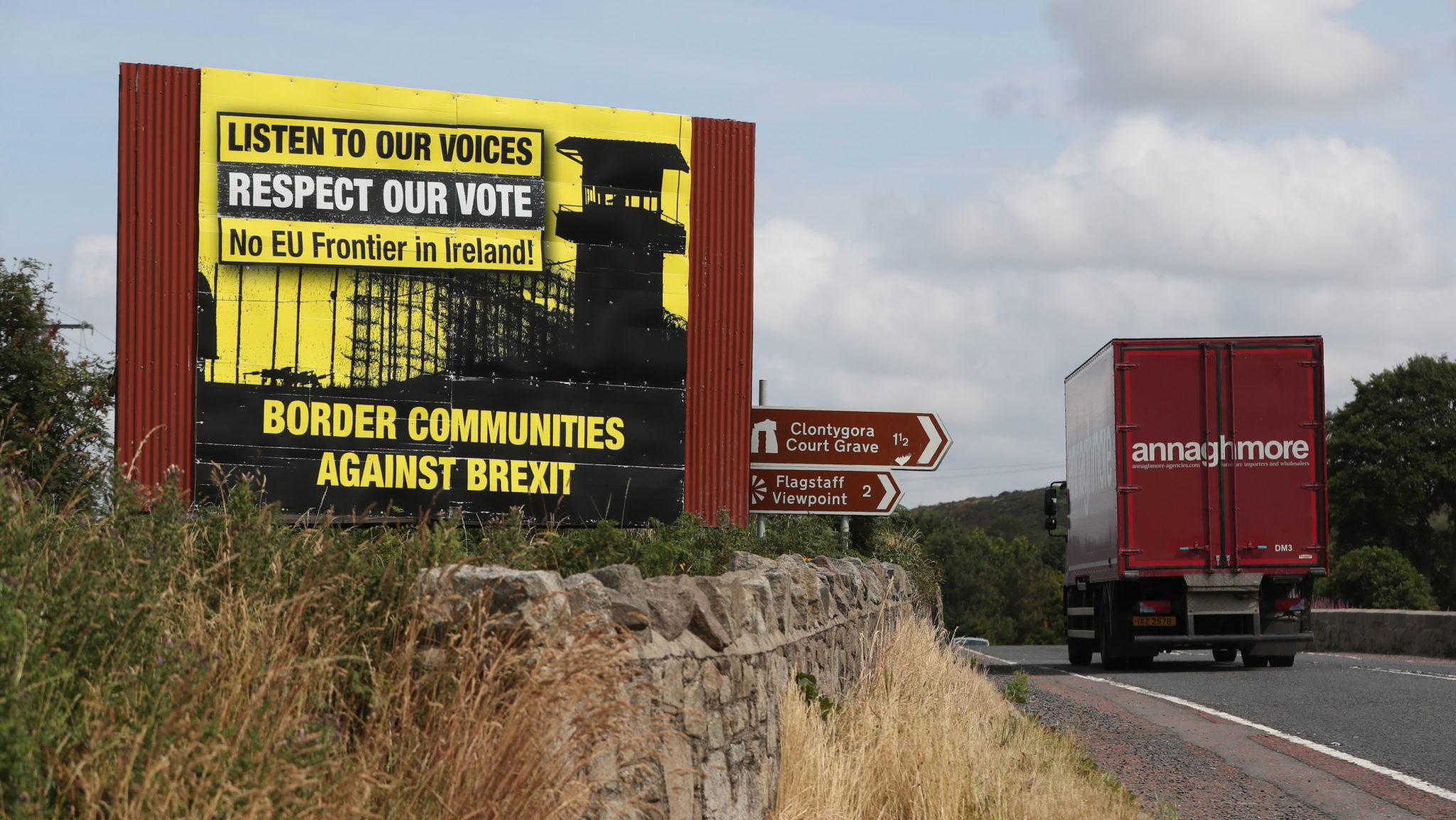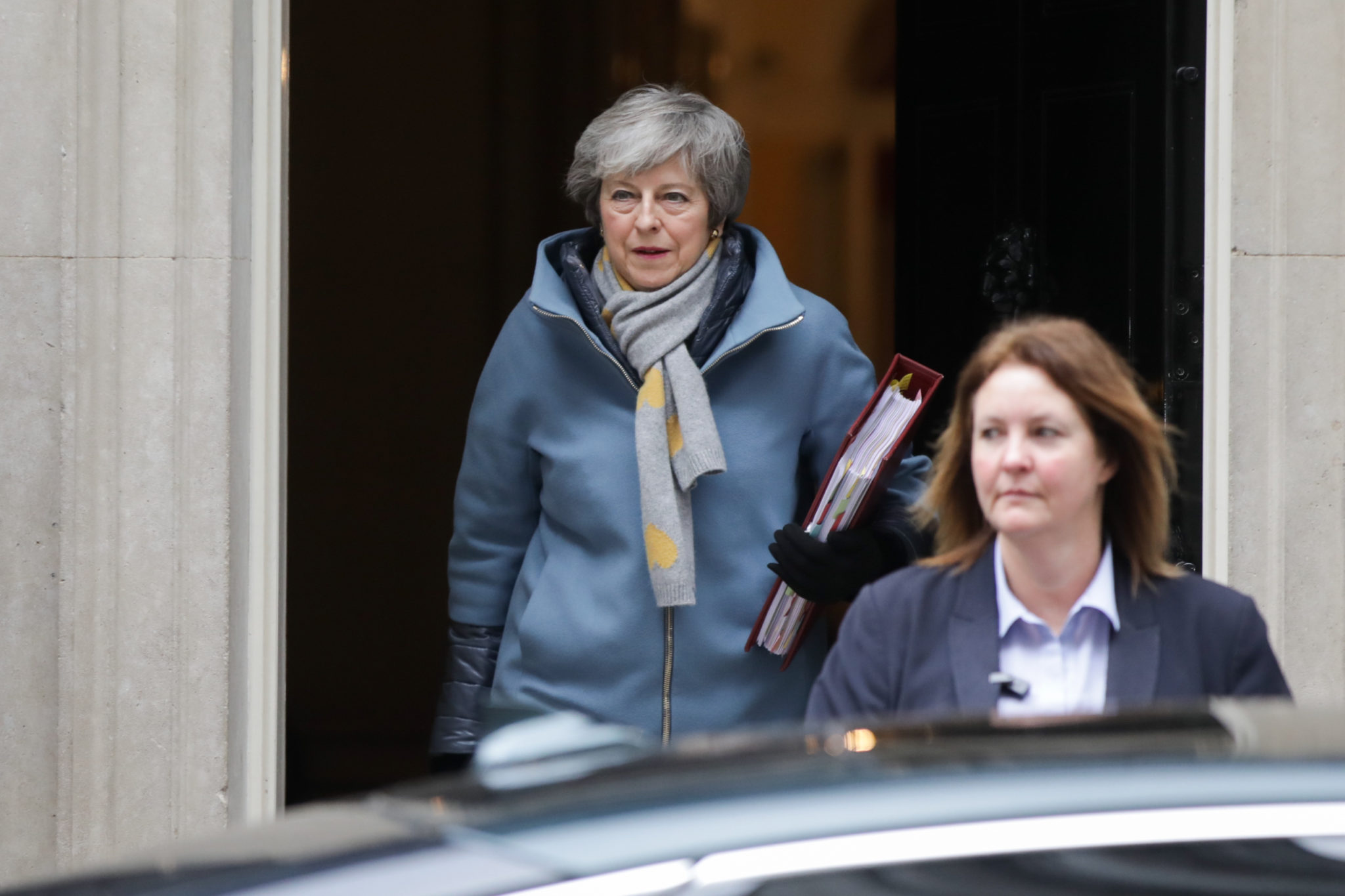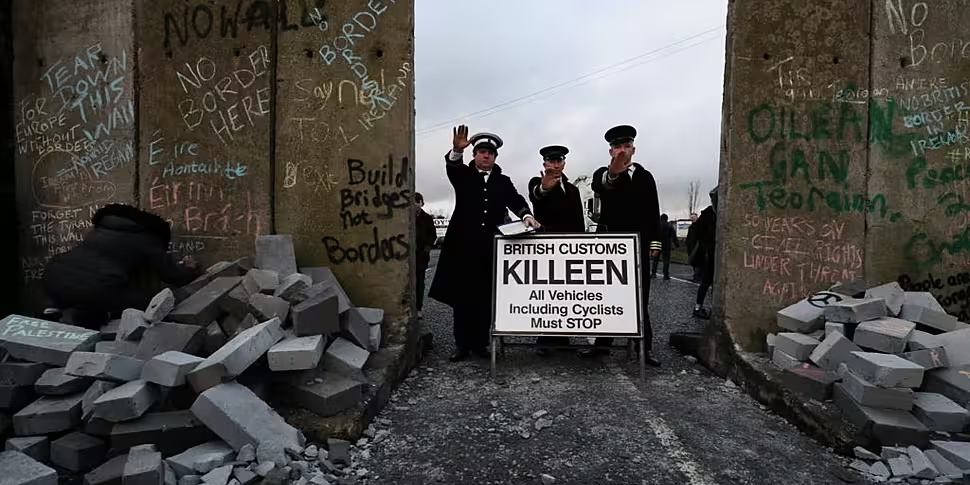Irish farmers are warning that the sector faces an €800m “direct hit” if the UK Government imposes tariffs on goods entering Britain after a ‘no-deal’ Brexit.
Westminster announced its 'no-deal' plans this morning – including its approach to import taxes and its plans for the Irish border if it crashes out without a deal.
Under the proposals, Westminster has pledged not to introduce any new border checks on goods travelling between Ireland and Northern Ireland – except for a "small number of measures strictly to comply with international obligations, protect the biosecurity of the island of Ireland, or to avoid the highest risks to Northern Ireland business."
There will also be no new taxes on goods travelling across the Irish border – provided they are due to remain in Northern Ireland.
Irish Sea
When it comes to goods travelling into the rest of Britain however, some 13% of imports will be subject to tariffs.
The UK Government said this will not create a new border down the Irish Sea – as there will be no checks between Northern Ireland and Britain.
Instead, Britain will attempt to collect the taxes on goods travelling through Northern Ireland with an ‘anti avoidance rule,' enforced on the basis of intelligence.
The tariff plan would be temporary and would include a selection of sensitive imports, including some agricultural products such as beef, lamb, pork and some dairy, as well as car imports and some other products.
 Anti Brexit billboards on the northern side of the border between Newry in Northern Ireland and Dundalk in the Republic of Ireland as Theresa May is to make her first visit to the Irish border since the Brexit referendum.
Anti Brexit billboards on the northern side of the border between Newry in Northern Ireland and Dundalk in the Republic of Ireland as Theresa May is to make her first visit to the Irish border since the Brexit referendum.
“Disastrous”
Following the announcement, Irish Farmers Association President Joe Healy said any tariffs on beef products heading for Britain would be "disastrous."
“We export 90% of our beef – 50% of that goes into the UK,” he said.
“At the moment beef farmers are struggling to break even. They can’t afford to take a hit of at least €800m – which would be the minimum cost on tariffs of beef going into the UK.”
State aid
Speaking in the Dáil this afternoon, the Tánaiste Simon Coveney said any tariffs imposed by Britain will be damaging to Irish businesses, farmers and consumers.
He said the Government is in talks with the EU about relaxing state aid rules in an effort to protect Irish jobs.
“Tariffs will have a negative impact on trade and will be damaging to businesses farmers and consumers – whether in Ireland or in the UK,” he said.
“We will study the impact of these proposals carefully together with our EU partners and we have already contact this morning.
“However, it should be stressed that no option, including zero tariffs for some product categories or managed tariff rate quotas, would be as good as what is already on the table in the withdrawal agreement.”
 British Prime Minister Theresa May leaves 10 Downing Street for the Prime Minister's Questions in the House of Commons, 13-03-2019. Image: Xinhua News Agency/PA Images
British Prime Minister Theresa May leaves 10 Downing Street for the Prime Minister's Questions in the House of Commons, 13-03-2019. Image: Xinhua News Agency/PA Images'No deal'
In the House of Commons this afternoon, UK Prime Minister Theresa May said the new taxes would never have been necessary if the MPs had backed the Brexit Withdrawal Agreement.
Opposition leader Jeremy Corbyn meanwhile said the deal had already been twice rejected adding that it "is now dead."
The Brexit Withdrawal Agreement was rejected by 149 votes in the House of Commons last night.
UK MPs will today vote on whether to take the threat of a 'no-deal' Brexit off the table – by voting for a motion which states that that the House of Commons “declines to approve” leaving the EU without a withdrawal agreement and framework for a future relationship on March 29th.
It also notes that leaving without a deal remains the default in the UK and EU law unless an agreement is ratified.
If the vote is passed UK politicians will tomorrow be asked to vote on extending Article 50, which if carried would mean the UK would not leave the EU on the proposed date of March 29th.
“We remain respectful of 🇬🇧 & its people. We remain determined, calm, united until the end of this extraordinary negotiation. We shall defend the 🇪🇺’s interests & all its citizens. That will remain the line of your negotiator.” @MichelBarnier #Brexit @Europarl_EN
— Daniel Ferrie 🇪🇺 (@DanielFerrie) March 13, 2019
Brexit
Political leaders around Europe reacted with disappointment to last night’s vote.
European Council President Donald Tusk said the EU has done all it can to reach an agreement – while the EU's Chief Brexit negotiator Michel Barnier said 'no-deal' preparations are now more important than ever.
A spokesman for European Council president Donald Tusk said: "It is difficult to see what more we can do.
"If there is a solution to the current impasse it can only be found in London."
He added: "Should there be a UK reasoned request for an extension, the EU27 will consider it and decide by unanimity.
"The EU27 will expect a credible justification for a possible extension and its duration.
"With only 17 days left to March 29, today's vote has significantly increased the likelihood of a no-deal Brexit.
"We will continue our no-deal preparations and ensure that we will be ready if such a scenario arises."
The Taoiseach Leo Varadkar has travelled to Washington as part of his annual St Patrick’s Day visit – and is expected to comment for the first time since the vote this afternoon.
Article 50
Announcing the House of Commons’ next steps in the Brexit process last night, UK Prime Minister Theresa May said Tory MPs will be allowed a free vote on the deal.
"I have personally struggled with this choice as I am sure many other MPs will,” she said.
"I am passionate about delivering the result of the referendum. But I equally passionately believe that the best way to do that is to leave in an orderly way with a deal and I still believe there is a majority in the House for that course of action.
"And I am conscious also of my duties as Prime Minister of the United Kingdom of Great Britain and Northern Ireland and of the potential damage to the Union that leaving without a deal could do when one part of our country is without devolved governance."
She warned that voting down ‘no deal’ and asking for extension of the process “does not solve the problems we face.”
"The EU will want to know what use we mean to make of such an extension,” she said.
"This House will have to answer that question. Does it wish to revoke Article 50? Does it want to hold a second referendum? Or does it want to leave with a deal but not this deal?
"These are unenviable choices, but thanks to the decision the House has made this evening they must now be faced."
Meanwhile, a group of Leave and Remain Tory MPs have already tabled an amendment proposing a "standstill" agreement lasting as late as the end of 2021, during which the UK would observe EU rules and pay into Brussels budgets while a full trade deal is negotiated.
The opposition Labour Party has called for a General Election – and criticised Theresa May for allowing a free vote on no deal.









